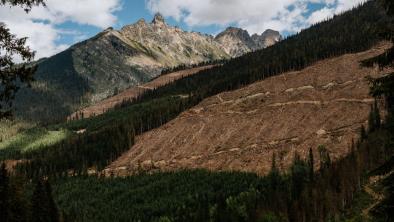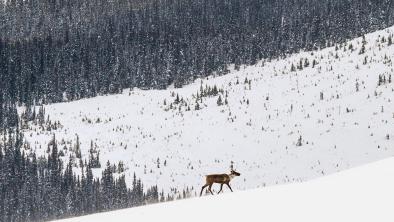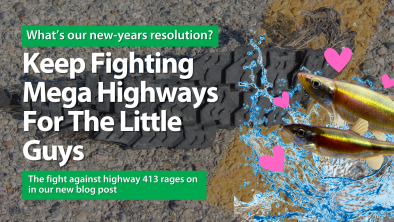Gas spill a reminder of fragile state of wild salmon
Goldstream Gazette
Sometimes a terrible accident presents an opportunity to assess our priorities as a society.
We should take the Goldstream River fuel spill as a chance to consider if we are doing enough to protect our wild salmon.
Wild pacific salmon have tremendous ecological, economic and social importance to our communities and our way of life as British Columbians.
Coastal communities, in particular, depend on a strong salmon population which provides the necessary nutrients to sustain precious forests, create valuable jobs for communities, and are used for traditional ceremonial activities for First Nations.
Goldstream River was once home to a thriving ecosystem filled with chinook, chum and coho salmon, as well as steelhead and cutthroat trout and smaller invertebrates.
The future of the river, however, is now uncertain after a devastating tanker truck crash near Goldstream Provincial Park on April 16 that released about 42,000 litres of gasoline and 600 litres of diesel into the river system.
Prior to the accident, the river's salmon stocks were in steady decline, with the lowest run on record in 2010. This incident, however, drastically jeopardizes the viability of this once healthy river.
The spill in Goldstream highlights the fragility of salmon as a keystone species and the need for stronger legislation to ensure their protection. Unfortunately, the spill represents only a minor threat to the species’ well being compared to the salmon farming industry. Salmon farming off the coast of B.C. has grown immensely in recent years, with over 100 industrial farm sites off the Pacific coast.
Years of peer-reviewed scientific data prove the negative impacts of salmon farming on wild pacific salmon stores and dispel the propaganda released by organizations such as the B.C. Salmon Farmers Association.
Wild salmon are forced to migrate through the Salish Sea, passing numerous salmon farms where they risk being infected by sea lice, compromising their immune system and becoming easier targets for predators.
Industrial farming dramatically increases the susceptibility of salmon to viruses and diseases, which have presented themselves in other aquatic species through escaped fish and cross-breeding. Farmed fish are pumped full of antibiotics and hormones that are unhealthy for themselves as well as for consumers.
The current federal election presents a valuable opportunity to introduce stronger legislation to protect wild salmon. As citizens, we must ask all of our electoral candidates to outline their platform on salmon protection and where they stand on fish farming off the coast of B.C.
Since salmon farming moved from provincial to federal jurisdiction in June 2010, Ottawa has failed to fulfill their responsibility to protect one of our province's most prized species. If we wish to preserve the many salmon species of the Pacific coast, we must vote for salmon.
We can't afford to wait for another devastating spill. The time is now to take all possible measures to ensure the future of our wild salmon.
—Cam Gray is the Vancouver Island outreach co-ordinator for the Wilderness Committee and a graduate of Belmont secondary.


